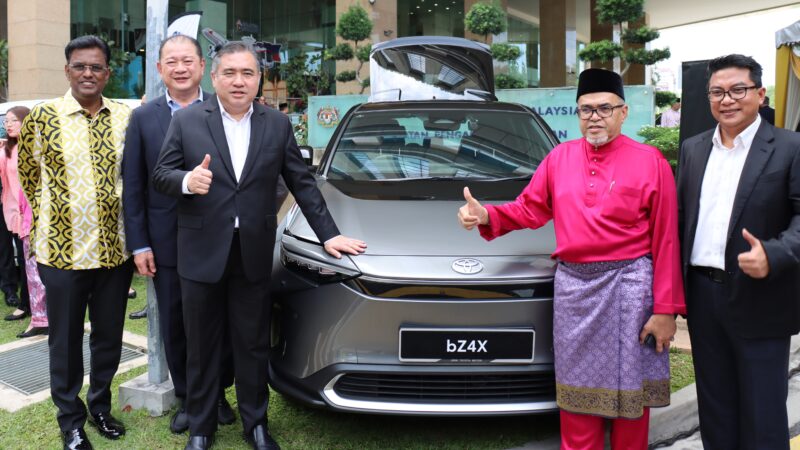UMW Toyota Motor (UMWT) has forged a strategic partnership with the Ministry of Transport Malaysia (MOT) to drive green mobility initiatives.
As a show of strong support, UMWT has delivered five electrified vehicles, including hybrid electric vehicles (HEVs) such as the Toyota Alphard, Camry, and Corolla Cross, as well as two battery electric vehicles (BEVs), the Toyota bZ4X and Lexus RZ.
Through this initiative, the MOT has the opportunity to assess the true capabilities of these vehicles concerning suitability, performance, and benefits for daily use.
Additionally, UMWT will provide comprehensive hands-on learning opportunities for MOT officials, covering aspects from infrastructure readiness, user experience to operational efficiency across various platforms.
According to Datuk Ravindran K, President of UMW Toyota Motor, “Malaysia’s journey towards achieving net-zero emissions by 2050 is not just an empty vision, but a collective mission that demands close collaboration across all sectors.”
“Through the ‘Multipathway Toyota’ approach, electrification is not merely viewed as an innovation, but is also adapted in an inclusive and pragmatic manner according to the needs, readiness, and capabilities of various segments of society.”
“With this approach, every layer of society is given the opportunity to move forward together towards a greener and more sustainable future—no one will be left behind, no one will be marginalized,” he further stated.
While full electrification remains a long-term aspiration for the country, hybrid technology emerges as an effective solution to minimize carbon emissions without requiring drastic changes to existing infrastructure or consumer habits.
According to Mohd Shamsor Mohd Zain, Executive Director of UMW Toyota Motor, “Hybrid technology continues to be a key driver in Toyota’s electrification plan, particularly in the context of markets like Malaysia.”
“Its ability to reduce carbon emissions immediately without necessitating major changes to the supporting ecosystem makes it the most ideal option.”
“It not only offers practical solutions but also builds confidence among mainstream consumers while paving a smoother and more progressive path towards a fully electric mobility future.”
